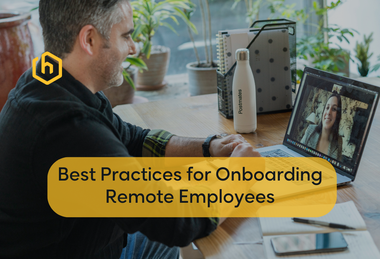Advertise in the Right Places
Indeed, Glassdoor and Reed are consistently popular job boards for in-office recruitment. They may even land you some remote hires. However, companies hoping to employ experienced remote workers may also benefit from advertising on niche boards including Gumtree, Remote UK, and Problogger.
Well-versed remote workers are more likely to use these sites when looking for new opportunities. By comparison, a remote listing on a traditional job board is more likely to appeal to people who have never worked remotely before. While there’s nothing inherently wrong with that, it does increase the chances of a high turnover, or an unsuitable applicant.
By expanding your job search to a more experienced pool of remote workers, you increase the chances of reaching individuals who may already have the right equipment or software, and who already understand what a remote role might entail.
Outline Remote Obligations
Clearly outlining job obligations is essential even for in-office advertisements. For a less clear-cut remote role, it becomes even more imperative that you outline what you expect from that individual before they’ve considered your position.
This is because successful remote work is always dependent on clear lines of communication. There’s also an increased vagueness around remote roles, which could land you in trouble if you intend for a remote worker to be available 9-5, but an applicant imagines that they’ll be able to pick their hours. Equally, a new hire is unlikely to stick around if they thought remote work would be home-based, but you need a remote representative to visit clients in the local area.
Obligations that you should always specify in a remote job posting include –
- Expected work hours and time zones
- Whether work is flexible or scheduled
- Frequency of communication required
- Expectations for any in-office meetings
- Whether a position is permanently remote
Offer Extensive Video Interviews
61% of recruiters anticipate video interviews becoming the norm, especially as remote work continues to thrive. And, it goes without saying that having the right setup to conduct video interviews is vital before any remote recruitment drive. What’s less clear cut is how many video interviews you should stipulate before offering someone a remote role.
To understand this, it’s first vital to realise that, in most instances, in-office interviews aren’t a practical option for remote hires. While exceptions may exist for, say, candidates who will only work remotely half of the time, it’s rarely worth the travel expense or effort of interviewing a fully remote candidate face-to-face. Not to mention that 66% of remote job seekers are more likely to apply if video interviews are an option.
Recruiters do, however, need to get a good idea of what a remote employee has to offer. To do this, it may be necessary to exceed the 1-3 interviews of a standard in-office role, and instead offer a minimum of three video rounds. This is vital for ensuring a personal connection. It also buys you time to introduce everyone that may need to work with that remote hire, without completely overwhelming them in one interview round where they meet your entire team.
Ask the Right Questions
You’ll want to know a lot of the same things about a remote hire as you would with any other candidate. While the framing may change slightly, things like experience, personal skill sets, and long-term career goals are equally as relevant for remote hires.
You should tailor your more in-depth questions towards a remote position. After all, this is a unique working setup, and it requires some unique skills that you can determine by asking questions such as –
- Do you work well alone as well as in a team?
- What kinds of remote projects have you worked on previously?
- What project management software have you used?
- What do you enjoy about working remotely?
- Have you encountered any challenges while working remotely?

Keep Company Culture at the Forefront
Too often, employers forgo the importance of company culture when advertising for a role that isn’t, technically, ‘within’ a company’s offices. But, whether a remote employee comes to the office everyday or not, they’re still a member of your team. As such, securing the right candidate requires you to consider, and make clear, your company culture from the first interview stages.
When it comes to remote candidates, you still want to look for prospects with the right personality, work ethic, and general outlook for working well with your team overall. Equally, showcasing a great in-office culture through things like virtual office walkarounds, or simpler indicators like the language you use throughout your interviews, can help a remote candidate to see why your company is worth working with over the other now-countless remote roles out there.
Get Ready for Remote Employees Using HireHive
Remote recruitment might seem like a step away from the in-office processes that you’ve been using for years, but there’s no reason why you can’t get it right with HireHive. Our recruiting software offers you complete oversight and management of your remote hires from step one to your final job offer.
By auto-posting your remote job listing on niche job boards of your choosing, HireHive can help you find and accept high-quality remote candidates, even if you’ve never embarked on this type of hire before. HireHive also makes it easier to set up and schedule online interviews, while record scorecards & feedback for each candidate ensure that you can easily revisit what virtual hires have said throughout the employment process.
Remote hiring has never looked easier. Simply start as you mean to go on by booking a free trial of HireHive today.








